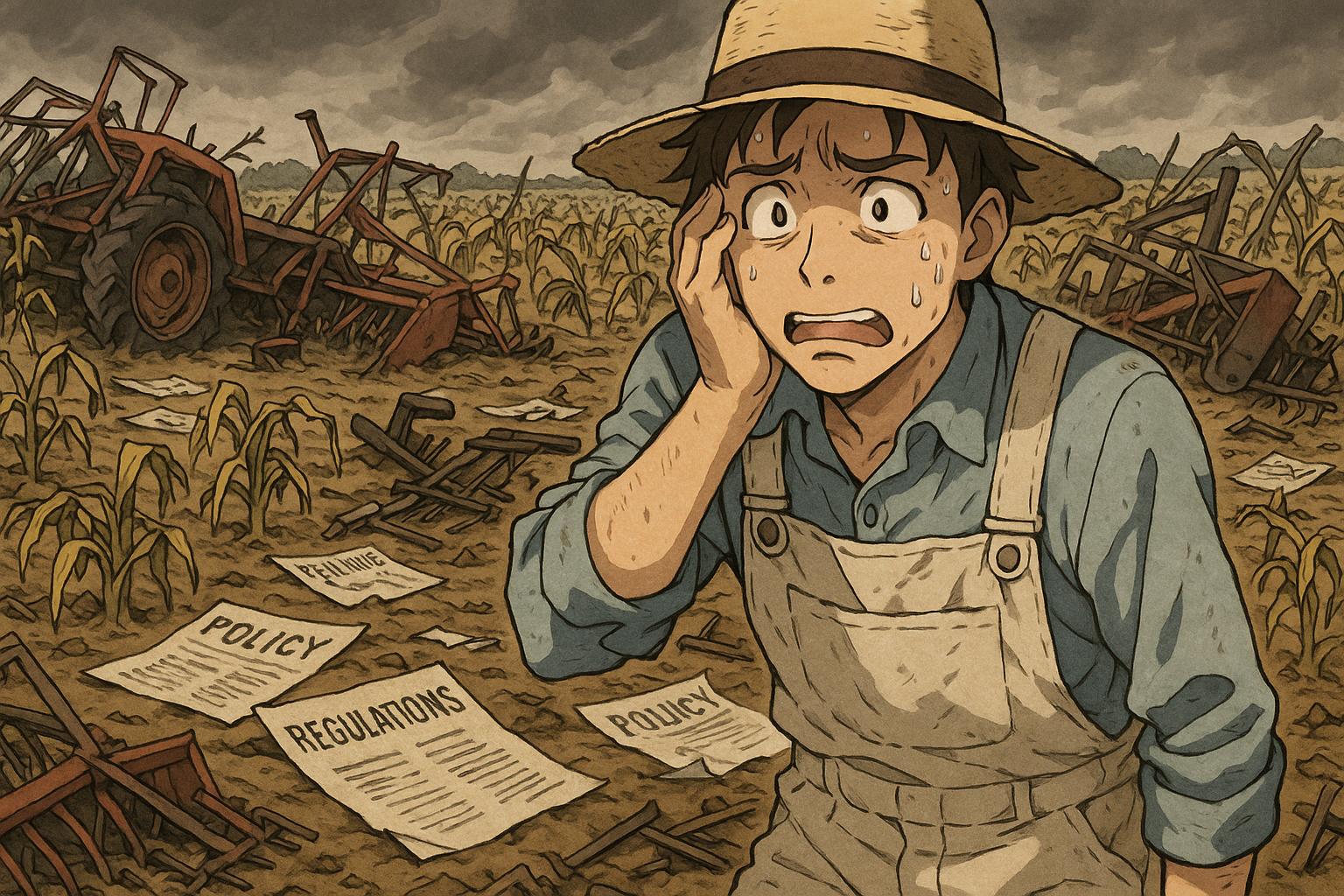In a landscape like modern farming, the chaotic and seemingly deliberate mismanagement of agricultural support systems is raising serious concerns. The Sustainable Farming Incentive (SFI) has become a glaring example of this dysfunction. Transitioning from the Basic Payment Scheme, which, while imperfect, at least provided a degree of stability, has left many farmers bewildered and frustrated as they are forced to navigate abrupt policy shifts with scant communication from the government.
The rollout of the SFI has been nothing short of a disaster, marked by significant delays and the cancellation of numerous applications. Farmers are now in a precarious situation, struggling to plan for crucial periods like autumn planting. This crisis has only intensified due to dwindling payments under the Basic Payment Scheme and soaring input costs. With an uncertain future regarding support, many agricultural operations are teetering on the edge of survival.
The National Farmers’ Union (NFU) has been uncharacteristically diplomatic in voicing these pressing concerns, urging ministers to correct the ongoing mishaps. NFU President Minette Batters has stressed that the financial strain on farmers is intolerable. The current system, which purports to promise environmental benefits, is instead funneling confusion and chaos into farm operations. Farmers increasingly find themselves squeezed between political assurances and an unsettling reality that appears more like neglect than support.
Adding to this tumult, the Nature Friendly Farming Network has raised alarms about the implications of restricting the SFI to new applicants. Such a decision risks disproportionately affecting vulnerable farming systems, particularly grassland and upland livestock farms, which depend heavily on stable funding to operate effectively. As the landscape evolves toward initiatives like rewilding and biofuel crops—largely prompted by changing subsidy structures—the crucial question of sustainable food production hangs in the balance.
Moreover, alarming reports indicate that farmers are being pushed to consider alternatives due to subsidy cuts and erratic weather conditions. This shift away from traditional food production towards less conventional practices is not merely financial; it signals a profound disconnection from the realities of agricultural necessity, heavily influenced by government policy priorities.
As we critically assess the competence of our agricultural support systems, one cannot help but wonder: is this mismanagement a byproduct of an inept bureaucracy or a deliberate strategy of neglect? The absence of clarity and timely communication breeds feelings of helplessness and obstruction, prompting many to seriously question the effectiveness of their leaders in addressing these urgent issues.
The situation demands not just immediate fixes but also a fundamental reevaluation of how agricultural support schemes are structured and communicated. Emphasizing transparency, consistency, and genuine engagement with farmers is crucial; otherwise, they risk becoming victims of a support system that should be a partner, not an adversary.
In navigating this complicated terrain, it is imperative that all stakeholders—government, farmers, and support networks—unite to forge a robust agricultural future that aligns sustainability with the essential realities of food production. Without this collaborative effort, we risk overshadowing our agricultural heritage and compromising our food security.
Source: Noah Wire Services
